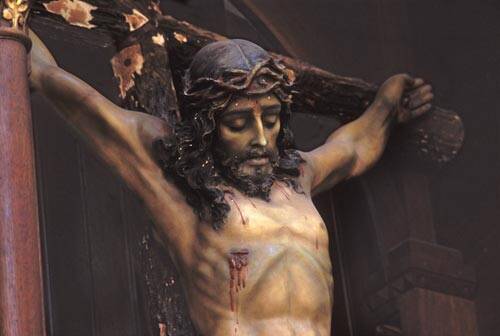In April of 2012, Tom De Troyer received a letter from his mother Godelieva, 63. It wasn’t updating him about her life-long struggles with depression or inquiring about Tom’s wife and three children. The letter was written in the past tense, reporting that she had been euthanized and had donated her body to science. It contained the address of friends who would have the keys to her house.
Tom drove there immediately and learned that her friends had taken his mother to the clinic, so she wouldn’t be alone. Tom asked how they could have assisted in her suicide. She wasn’t terminally ill. Physically, she was fine. Her dark moods had simply become too oppressive.
Godelieva’s friends were defensive. It saddened them that Tom and his sister had been excluded from their mother’s decision, but in Belgium assisted suicide is legal. There, Rachel Aviv writes in The New Yorker,
Most physicians in Belgium had opposed euthanasia, though some of them had been covertly assisting in suicides for the terminally ill. In a Europe growing ever older, the choice to avoid suffering at life’s end seems logical. If the individual has every conceivable right to self-determination, is there any choice more personal, less open to intrusion from the state, than the decision that death is preferable to life?
Doctor Wim Distelman, an oncologist and professor of palliative medicine at the Free University of Brussels, simply extends the logic of an unlimited liberty. He has euthanized more than a hundred patients. Godelieva De Troyer wasn’t dying. She asked him to end a life that had grown burdensome. Many would argue that asking to be euthanized in the absence of a terminal illness suggests a psychological pathology that should be treated, not terminated with the patient’s death. Aviv asked the same of the professor: “Although their suffering derives from social concerns as well as from medical ones, Distelman said that he consider their pain to be incurable. ‘If you ask for euthanasia because you are alone, and you are alone because you don’t have family to take care of you, we cannot create family.’”
All animals feel pain, but humans bear an additional burden. We fear it. Once having known it, we do what we can to avoid it. Pain is an ever present threat to human life. We know with certainty that it is coming, though not how or when.
And, because we are human, we share the pain of others. We see them grimace. We hear them moan. Watching a loved one in pain, physical or psychological, is so difficult. Many of us would rather bear the agony ourselves than see someone we love experience it. We observe it in the other and cannot fathom its depths. It terrifies us.
Depth is another word for God, the abyss that frightens us. At the very least, the abyss raises the question of God. Is human life a consciousness closed in upon itself? If the human spirit isn’t created in order to open to something larger than the self, then the logic of incurable pain is inescapable: live life until it overwhelms you and then close it on your own terms.
Christ gave himself into the abyss. He bore pain, even to the point of death on a cross. Before that, he lived a life of compassion. He suffered with others. If Christ is who he said that he was, the very presence and mercy of God in our midst, then human life is not closed in upon itself. It is not meaningless. Its purpose and scope is greater than pain or sorrow, than passing joy or ever returning anxiety.
Christ bore testimony with his death. It contains a beauty and a consolation captured in every crucifix. Small wonder that Catholics want them everywhere. But is it true? Or is resurrection only the fantasy of those overwhelmed by fear?
We’d like to know before we choose. We’d like proof before we live our lives, before the pain. That isn’t given to us. It’s just not. You can choose not to believe, but you cannot forestall the darkness that begins to gather, even at the dawn of life. Whatever the suffering—and it’s as varied and as particular as each one of us—there is always one choice: to open ourselves to faith, a hope that runs deeper than reason, or to close in upon ourselves, to extinguish pain with the sacrifice of our very person.
Of course, the choice isn’t confined to a single moment. Hope and despair are twin, ever-present ways of life. Every day, in every decision that makes us human, we choose one of the two, opening or closing to the mystery that engulfs us. Our decisions make us who we are. They determine how we live and how we will die. Choice is the burden and the blessing of what it means to be human. Not to choose is already to have chosen.
Of course we’d like to see and then to choose, but to see in the way the skeptic desires would draw down the curtain on the very drama of human life. To be human is to know and to be free. Or, perhaps better put, it is a yearning to learn and a deep desire to break free. Surety would still both.
All pain is incurable. It can be denied; we can numb ourselves to it, but pain is the price we pay to live. You can recoil from paying it, but you cannot refuse to choose.
Jeremiah 23: 1-6 Ephesians 2: 13-18 Mark 5: 30-34








